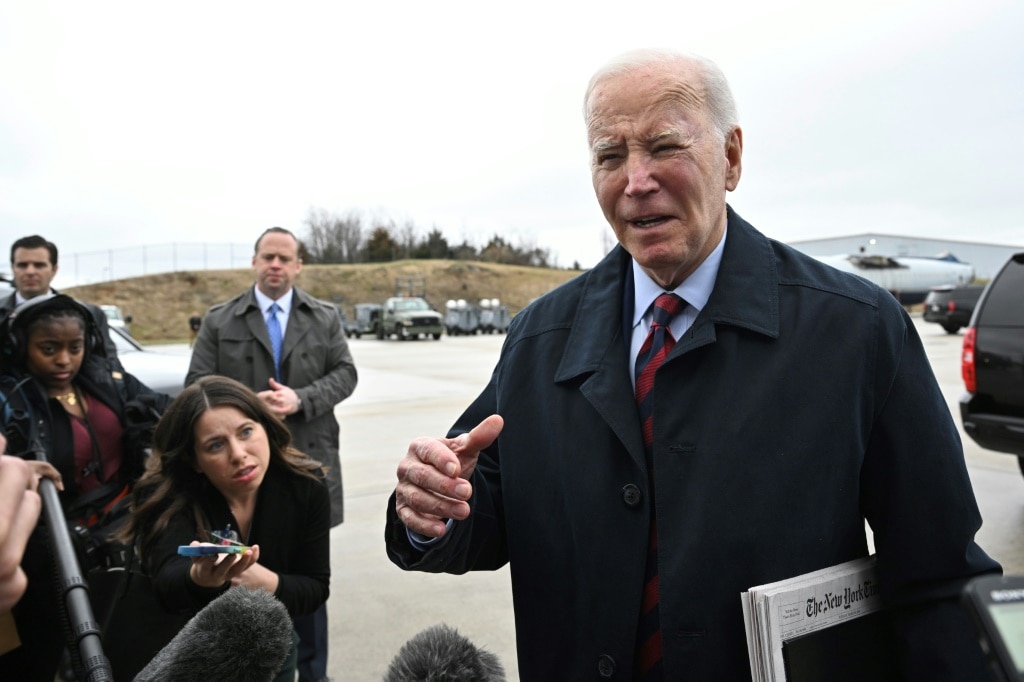Mediators try to buy time as Israel, Hamas dig in on talks
US and Arab countries have proposed a humanitarian pause as negotiations stall in Cairo.

US and Arab negotiators proposed a short pause in fighting in the Gaza Strip to buy time for a longer ceasefire between Israel and Hamas, as talks appeared stuck with time running out for a deal before a Ramadan deadline.
Tuesday’s push for a shorter ceasefire – even lasting a few days – could prove to both sides that the other is serious about a longer deal, negotiators said.
Israel and some negotiators believe Hamas only wants to escalate fighting to inflame regional tensions during Islam’s holy month starting on Saturday, while Hamas points to Israel’s threat to launch a final offensive on Gaza’s southern border if no agreement is reached.
As the war in Gaza persisted on Tuesday, a silver lining in talks emerged when all sides agreed to keep talking for another day in the Egyptian capital, where mediators expect negotiations in the coming days to either result in a deal or break down into more bloodshed.
The US and Arab negotiators pushed to keep talks going as political pressure piled on the Biden administration to produce a pause in fighting in Gaza that has left more than 30,000 Palestinians dead, according to Gaza health authorities.
The US has grown frustrated with Israel as one of its closest allies oversees a humanitarian crisis that includes reports of children dying from malnutrition.
On Monday, in a meeting with Israeli war cabinet member Benny Gantz, US Vice-President Kamala Harris criticised Israel’s handling of Gaza’s humanitarian needs, an Israeli official said.
“There’s a lot of criticism and mistrust” towards Israeli Prime Minister Benjamin Netanyahu, the official said, after previous assurances he made to the administration weren’t kept. “There were harsh messages on aid and strategic clarity moving forward.”
Mr Netanyahu has previously cited disagreements with the Biden administration, but says he is carrying out the policy he thinks is in the country’s best interests.
In turn, the official said, Mr Gantz argued that Israel – which has destroyed much but not all of Hamas’s military infrastructure over the past five months – will need to finish off the terrorist group in the city of Rafah. Otherwise, the official said, Hamas could regroup and rearm once there is a ceasefire, a position held by the three-member war cabinet.
“Finishing the war without demilitarising Rafah is like sending in firefighters to put out 80 per cent of a fire,” Mr Gantz told US officials.
The White House hasn’t publicly supported an offensive on Rafah without a plan to manage the more than one million displaced people who have flooded into the city. Mr Gantz was surprised by how far apart Israel and the White House were on whether an operation in Rafah was viable, the official said.
Speaking overnight on Tuesday, President Joe Biden said the outcome of the talks was “in the hands of Hamas. The Israelis have been co-operating. There’s an offer out there that’s rational. We’ll know in a couple days what will happen. We need a ceasefire. We’ll see what Hamas does.”
Israel is negotiating for the release of dozens of hostages taken captive on October 7, when Hamas stormed across the border and killed more than 1200 Israelis, most of them civilians. A brief ceasefire in November led to the freeing of more than 100 hostages, but 130 remain in Gaza, many of them feared dead.
Hamas is demanding a full Israeli withdrawal from the Gaza Strip that would allow hundreds of thousands of displaced Palestinians to return to their homes in the north and a commitment that a permanent ceasefire would follow a six-week pause in fighting in exchange for the release of hostages, Egyptian officials said.
Israel has refused this demand so far, worrying that Hamas could regroup there and that the issue, according to analysts, remains an important point of leverage to convince Hamas to release hostages. It has become an increasingly delicate sticking point in the talks, as Hamas sees the return of Gazans to their homes as an important political win.
US and Arab mediators have been negotiating with Hamas in Cairo since Sunday. An Israeli negotiator left Egypt on Sunday night, and Mr Netanyahu declined to send other representatives to continue the discussions. Still, talks are ongoing, according to Egyptian officials.
Mr Netanyahu last week said Israeli negotiators were facing a “brick wall of delusional, unrealistic Hamas demands”. Mediators are hoping to convince Israel to agree to a humanitarian pause that would allow for an increase in the flow of aid, as food and supplies in Gaza have become increasingly scant.
The Wall Street Journal





To join the conversation, please log in. Don't have an account? Register
Join the conversation, you are commenting as Logout